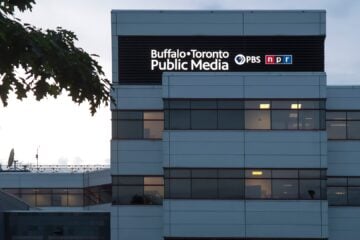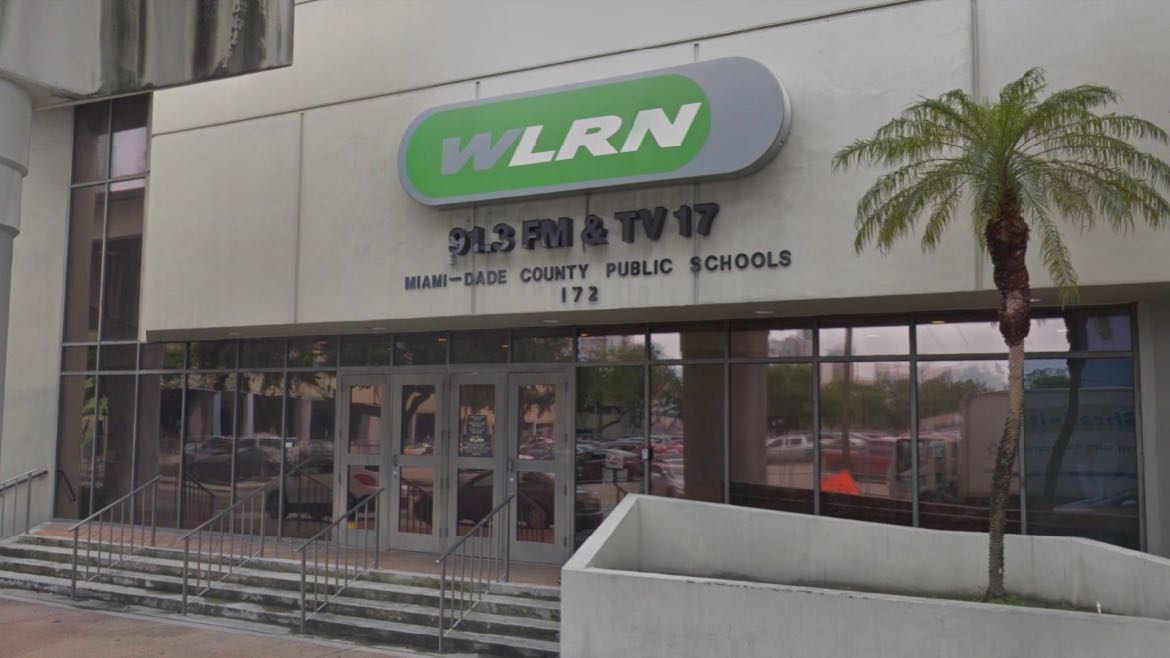TV broadcasters get another shot at leveraging channels into cash
The FCC’s incentive auction may not have resulted in the jackpot payday that some television broadcasters hoped for, but public broadcasters could still benefit financially through channel-sharing deals.
By working out agreements to share their channels with other noncommercial and commercial broadcasters that did succeed in selling their spectrum, public TV stations have a post-auction opportunity to earn money. The nonprofit consulting firm Public Media Co. described several ways that stations could benefit in an email sent to public TV station managers Thursday.
“As we transition from the FCC spectrum auction … public television stations may face unique and interesting post-auction opportunities that could allow them to improve their service, generate additional revenue, or both,” the email said.
Some broadcasters were disappointed by the auction returns, in part because promoters of the auction — led by mobile wireless operators and consumer electronics industry representatives — claimed that a critical need for more spectrum for mobile communications would generate far more than the $19.6 billion ultimately raised.
At one point, CTIA, the lobbying group representing the wireless industry, and the Consumer Technology Association projected in a white paper that the auction could raise $48 billion.
“Because the demand for spectrum by the [mobile] carriers was substantially less than expected, the broadcasters were generally disappointed by the prices they saw,” said Preston Padden, a former Disney Co. lobbyist who represented a group of broadcasters interested in selling their TV spectrum.
Added Dennis Wharton, spokesperson for the National Association of Broadcasters, “Wireless providers spent years promoting the specious spectrum crisis claim. Yet when they had the chance to solve this alleged crisis, the carriers suddenly closed their wallets.”
The latest TV industry chatter about channel sharing was spurred by a Feb. 6 FCC decision relaxing anti-collusion restrictions that had barred broadcasters from discussing their bid strategies and other issues related to the auction. The regulation allowing broadcasters to enter the channel-sharing deals was already in place last year.
PMC’s email Thursday outlined several channel-sharing options for public TV stations in the post-auction wave of deal-making.
Noncommercial broadcasters who auctioned all of their spectrum may be able to keep their licenses, forge channel-sharing deals with other stations in their markets and continue broadcasting. They can retain their “must-carry” legal rights that require local cable systems to transmit their signals, the email said.
There is a major caveat to this approach, according to the email: To be eligible to pursue these deals now, stations would have had to check a box in their pre-auction FCC application forms that indicated their intent to channel-share.
Public broadcasters who didn’t sell spectrum in the auction — either because they chose not to participate or because their application were unsuccessful — also have an opportunity to host commercial stations that auctioned off their channels but want to continue broadcasting.
In an interview, PMC CEO Marc Hand described another potential sharing scenario: A noncommercial licensee may be able to acquire the commercial license of a station that sold its spectrum. The noncommercial licensee could then split its own channel to offer both its noncommercial and commercial broadcasts at the same time.
There’s also an opportunity to preserve public TV broadcasts in markets where the local licensee has auctioned off its station’s spectrum. A community group may be able to acquire the station’s license, work out a sharing deal with another local broadcaster and keep the station’s programming on the air, Hand said.
“That could allow public TV stations to generate revenue by doing a channel share,” he said. As of early last week, Hand said PMC had been approached by commercial operators who have sold spectrum in the auction but want to work out sharing deals to continue offering their broadcasts in more than 10 markets. Due to confidentiality agreements, he declined to identify the broadcasters.
Hand couldn’t predict how much revenue a sharing deal might generate, in part because they have no precedent. But values could be based on market size and populations served, he said.
Broadcasters were permitted to negotiate channel-sharing deals and file them with the FCC before the auction began last March. The commission hasn’t disclosed how many of those applications were filed. Those that are consummated and survive the auction will be announced in the auction’s wake.
As PMC’s email notes, the FCC will open a second window to file channel-sharing deals after the auction wraps up March 30, but it will be limited.
After broadcasters receive their auction payments from the FCC, possibly starting in July, they will have as little as 120 days to file post-auction channel-sharing deals with the agency, according to Ari Meltzer, an attorney for the law firm Wiley Rein LLP.
That means the deadline to file applications could be set for November, Meltzer said.
PMC’s memo urges public broadcasters who are interested in channel-sharing to begin developing post-auction strategies.
There is a risk and downside to stations entering these deals under the FCC’s timeline. Stations that commit spectrum to another broadcaster will have less to devote to ATSC 3.0, the proposed “Next Generation TV” technical standard that the FCC will prioritize this year.
NextGen TV will clear the way for interactive capabilities and delivery of enhanced TV and data services over the air to homes and mobile devices, including smartphones and tablets.
“They [host stations] could still broadcast in ATSC 3.0 but would have less spectrum capacity, so the long-term trade-off should be considered,” said Hand.
In a separate outreach effort, PMC has been promoting ATSC 3.0 as a potential business opportunity for public stations, including those that delay a move to the new technology. Late adopters could earn money by serving as “lighthouse” stations, rebroadcasting the current generation of existing ATSC 1.0 signals of early-adopter stations in their markets.
Next steps for auction
The FCC is expected to unveil a complete list of broadcasters who sold spectrum in the auction and how much money they earn from it as soon as April, according to a memo from Wiley Rein. The same notice is expected to provide details about its planned repack of television channel assignments in each market. As the commission clears swaths of broadcast spectrum for the wireless providers who paid for it during the auction, some stations in each market will move to new channels.
Broadcasters affected by the repack will be assisted by some of the money generated from the auction.
The incentive auction grossed a total of $19.6 billion, according to the FCC. About $10 billion of those proceeds are being earmarked for commercial and noncommercial broadcasters who successfully sold spectrum in the auction; $1.75 billion has been allocated to reimburse broadcasters for some of the costs incurred during the repack, when they move to new channels.
More than $6 billion of the total is to be sent to the U.S. Treasury for deficit reduction, although the final amount may not be known until after the auction concludes March 30.
The payouts that have been announced by public stations so far have been dramatically less than the opening bids that the FCC provided for public station spectrum before the auction, Hand said.
The opening bid for Central Michigan University’s WCMZ in Flint, Mich., was $421 million, for example; the actual auction sales price announced by the university was $14 million. “The station got 3 percent of the opening bid number provided by the FCC,” Hand said.
“In many areas on the East Coast, you got fairly high opening bids, and those were to tease you into the auction,” said Dennis Haarsager, a retired public broadcaster and former NPR executive turned part-time consultant who has been monitoring the auction.
“The closing of the auction marks an important milestone, but we have a great deal of hard work left to do in a process whose benefits appear to have been greatly oversold,” said Patrick Butler, president of America’s Public Television Stations.
An FCC spokesperson declined comment.
“A lot of stations who we are talking with are still being pretty cautious” about how they fared in the auction, said Hand.
“The ones that elected to participate that didn’t get any proceeds are certainly disappointed,” he added.





